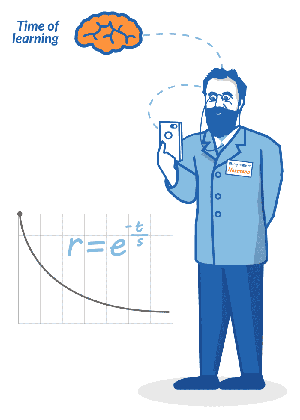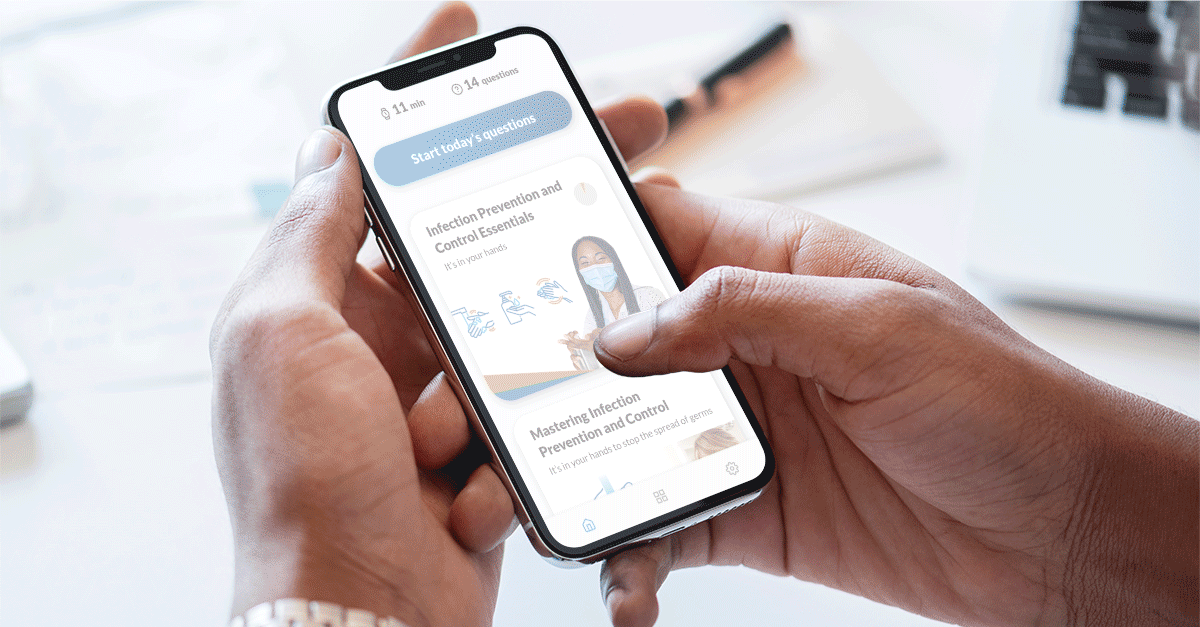
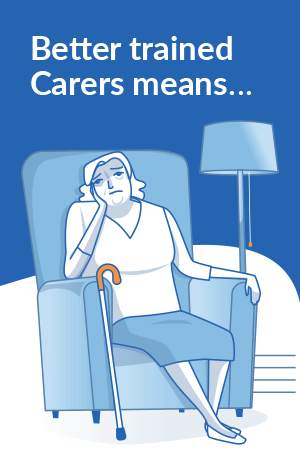
In October 2019, the Royal Commission into Aged Care Quality and Safety interim report shone a spotlight on some of the practices routinely occurring in Australia’s nursing homes.
The report makes for distressing reading, detailing as it does, elder neglect seemingly unimaginable in an enlightened country like Australia.
These issues are not confined to Australia, with the World Health Organisation reporting that 15.7% of people aged 60 and over were subject to some form of abuse or neglect. Shockingly, 2 out of 3 nursing home respondents reported that they had abused the residents in their care at some stage in the past year.
Whatever the reasons for this systemic abuse, it is clear elder abuse and neglect is a serious public health problem. No doubt, this issue will be more fully detailed when the final royal commission report comes out in 2021.
But we don’t have to wait till then to address one of the major problems so
clearly highlighted in the interim report - staff training.
OVERWORKED, UNDERPAID
 The aged care sector suffers from severe difficulties in recruiting, training, and retaining staff.
The aged care sector suffers from severe difficulties in recruiting, training, and retaining staff.
One of the lead causes for this is pay and conditions. Remuneration is comparable to job roles with repetitive work tasks – even though the delivery of safe, quality, customer centred aged care draws on a much broader range of interpersonal and soft skills.
According to Louise O’Neill, CEO, Aged Care Workforce Industry Council,
“Aged care workers are paid less for working in aged care than if they were doing comparable work in another sector.”
In addition, workloads are extremely heavy and staff sometimes lack key skills and training to help them cope with their job. When someone doesn't have the knowledge or skill to do their job confidently, consumer issues and incidents are inevitable.
According to the interim report (page 6) some of the common problems that stem from inadequate training include:
- Improperly administering medications
- Not changing the residents’ bedsheets or clothes
- Not checking for bedsores
- Not knowing how to perform CPR
- Not treating the residents properly for diseases or infections
- Not recognising when a resident has an issue or is in distress
Examples such as these clearly indicate how we train aged care workers needs a rethink if we want them to have the knowledge and skills to deliver great quality care. Our approach to staff training needs to be more consistent. We need to replace training intensity (one off training every now and then) with consistency.
TIME-POOR aged CARE WORKERS
 Unfortunately, however, aged care is a notoriously time-poor sector, with employees working long and physically demanding shifts. As a result, they are often too tired, both mentally and physically to sit down in front of a computer and complete elearning modules. A little and often approach to learning is a more suitable alternative.
Unfortunately, however, aged care is a notoriously time-poor sector, with employees working long and physically demanding shifts. As a result, they are often too tired, both mentally and physically to sit down in front of a computer and complete elearning modules. A little and often approach to learning is a more suitable alternative.
And that’s where we want to help.
Since 2013, we’ve been examining the efficacy of eLearning and questioning if it has kept pace with the needs of today's workforce.
Research shows that eLearning is increasingly viewed as outmoded and of little relevance to today’s employees, with companies looking to new and innovative technology solutions to train their staff.
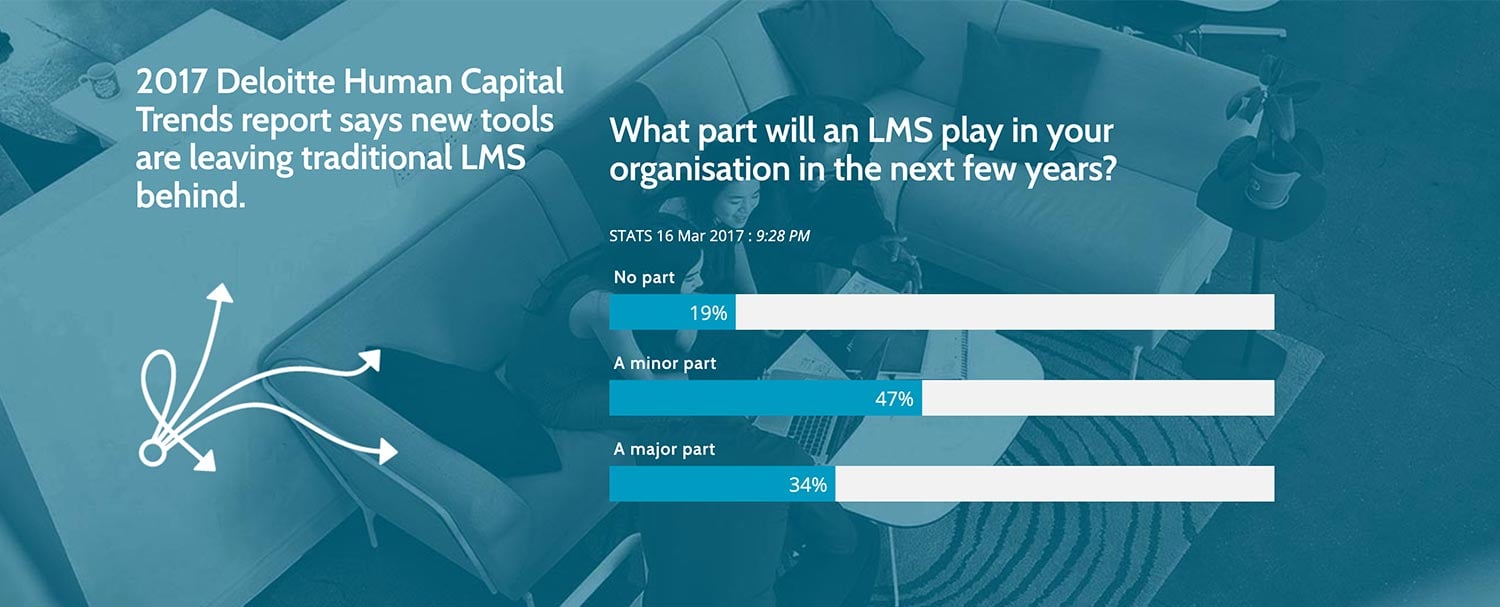
Determined to improve the business outcomes from learning, the research team at Obvious Choice started brainstorming new and better ways to help people learn at work.
 The Result?
The Result?
Forget Me Not is an app that continuously builds knowledge and skills by engaging employees in regular 5-minute learning challenges. Challenges repeat over days and weeks, until the knowledge is mastered.
“It’s like having your very own memory coach.
And it’s all wrapped up in a natural social-media chat experience.”- QGirl, your modern learning Superhero!
Forget Me Not is based on three key principles:
1. Little and often
Regular bites of learning and quizzing enhance knowledge retention.2. Regular breaks are critical to embed learning
Overloading or “cramming” the brain doesn’t create knowledge that “sticks.”
3. Questions are more important than answers
Questions drive people to actively retrieve a piece of knowledge and this results in improved retention and workplace practice.
Forget Me Not uses microlearning, a technique that breaks down job role knowledge into topical, bite-sized chunks that is easier for employees and better for business. This is because of the forgetting curve but that’s a blog for another day.
Aged care workers need a variety of learning techniques to build their knowledge, skills and confidence.
A LITTLE BIT MORE ABOUT MICROLEARNING:
 Microlearning is short form content that only takes between 1 - 5 minutes to consume.
Microlearning is short form content that only takes between 1 - 5 minutes to consume.
It can exist in any media format including text, graphic, video or audio.
The main differences between microlearning and traditional eLearning are that it takes less time to create, is much easier to digest and focuses on a single concept, like how to spot signs of neglect in an elderly resident.
Turns out, our attention is a finite resource. A bit like time. Forget Me Not only requires a few minutes of focused attention and commitment to building skill and knowledge every day.
And the app keep things interesting with different scenarios and challenges that maintains curiosity and engagement.
MICROLEARNING & AGED CARE
Let’s say you run an aged care facility and you want to upskill your employees.
You simply sign them up to the Forget Me Not app and they will start receiving questions that reinforce how to deliver safe, quality consumer centered care.
These questions take the form of 5-minute top ups of knowledge every shift they work.
Staff will be able to reinforce key skills like how to communicate effectively with residents, problem solving consumer issues, situational awareness, prioritising work tasks and meaningful engagement.
The questions also help to highlight gaps in your workforce’s knowledge so you can identify individuals who may need additional support, coaching and supervision.
 BETTER TRAINED STAFF =
BETTER TRAINED STAFF =
HAPPIER RESIDENTS = HAPPIER STAFF
There is no quick-fix or one size solution to the problems highlighted in the Royal Commission’s interim report. But one issue, staff training and competency, can be addressed right now.
The automated delivery of microlearning content ensures staff are able to learn continuously and in a way that works for your business.
By learning new skills and topping up on old ones, aged care workers will be able to better understand and address residents’ needs.
Feeling confident solving problems and issues for residents will help aged care workers feel happier and give their work even more purpose. And when that happens, tasks that were previously routine become heart-warming activities.
We are committed to helping the aged care industry build the competence and confidence of its workforce. Click here to subscribe.
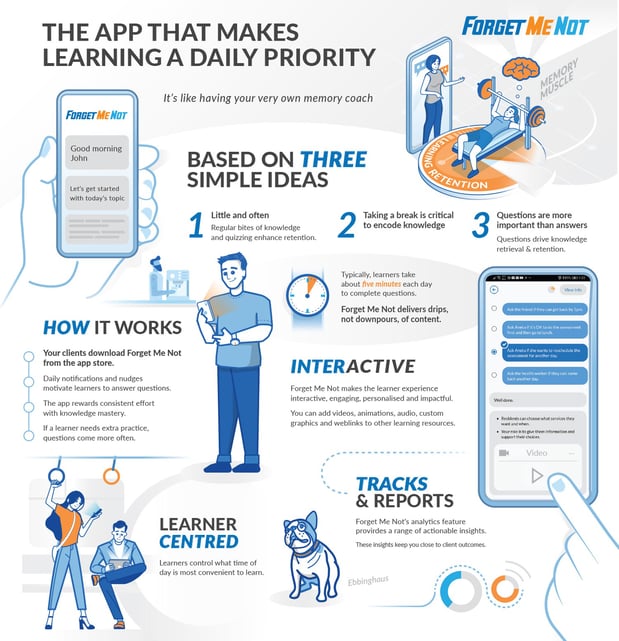
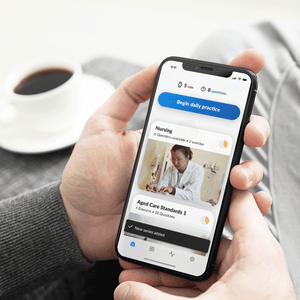 Digital learning, those experiences supported by technology connected to the internet, can just as easily add barriers as it can bridge gaps in the learning process.When it comes to digital learning, I think we need to know whether we’re building digital bridges or erecting barriers. Digital learning can easily overwhelm, inundate, and confuse the learner with options, prompts, challenges and an unpredictable torrent of information… some helpful and some not! I am not suggesting that this learning experience is better or worse, but it is decidedly different.
Digital learning, those experiences supported by technology connected to the internet, can just as easily add barriers as it can bridge gaps in the learning process.When it comes to digital learning, I think we need to know whether we’re building digital bridges or erecting barriers. Digital learning can easily overwhelm, inundate, and confuse the learner with options, prompts, challenges and an unpredictable torrent of information… some helpful and some not! I am not suggesting that this learning experience is better or worse, but it is decidedly different.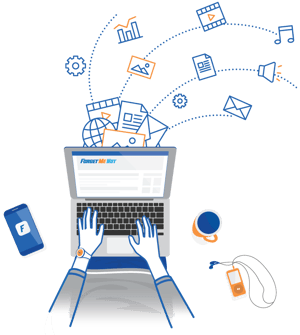
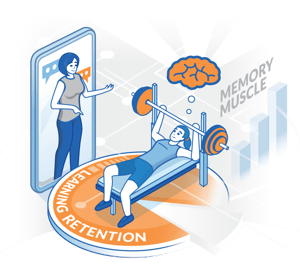 3 hacks to bridge gaps
3 hacks to bridge gaps